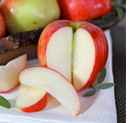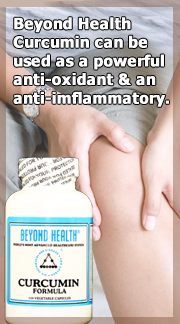Nov 3rd 2025
All About Apples
 . . . do eat the peel, but skip the seeds
If you’re going to start eating an apple a day, which apple should you pick? In one Canadian study Red Delicious led the pack in number of antioxidants, but many varieties better known in the US weren’t included. Really, all apples are recommended, as long as they’re fresh, unwaxed and organic.
Supermarket apples are often years old! So, as always, it’s best to buy your apples from the friendly farmer at your local Farmer’s Market. Apples in the northern hemisphere are best from late summer until early winter.
Many of the ancient supermarket apples are waxed. Put them in attractive baskets to
. . . do eat the peel, but skip the seeds
If you’re going to start eating an apple a day, which apple should you pick? In one Canadian study Red Delicious led the pack in number of antioxidants, but many varieties better known in the US weren’t included. Really, all apples are recommended, as long as they’re fresh, unwaxed and organic.
Supermarket apples are often years old! So, as always, it’s best to buy your apples from the friendly farmer at your local Farmer’s Market. Apples in the northern hemisphere are best from late summer until early winter.
Many of the ancient supermarket apples are waxed. Put them in attractive baskets to  decorate your home if you wish, but by all means don’t eat them!
Many of the healthy, antioxidant polyphenols in apples are formed in response to pests as a natural pesticide, so organic apples will have far more. Plus you won’t be getting the synthetic pesticides as well as fungicides and insecticides that bathe the poor non-organic apple. Have you seen the Environmental Working Group’s annual lists of foods to avoid if they’re not organic? It’s called the Dirty Dozen. Well, apples are #1 on this list!
And please eat the peel! The same Canadian study mentioned above found the peel is where most of the antioxidant polyphenols in apples hang out – they are five times more prevalent in the peel than in the apple flesh.
But don’t eat the seeds. Apple seeds contain low levels of the poison cyanide. While it is believed it would take a whole cupful of these seeds to kill you, even in low quantities they could cause gastrointestinal discomfort.
Bon appétit!
decorate your home if you wish, but by all means don’t eat them!
Many of the healthy, antioxidant polyphenols in apples are formed in response to pests as a natural pesticide, so organic apples will have far more. Plus you won’t be getting the synthetic pesticides as well as fungicides and insecticides that bathe the poor non-organic apple. Have you seen the Environmental Working Group’s annual lists of foods to avoid if they’re not organic? It’s called the Dirty Dozen. Well, apples are #1 on this list!
And please eat the peel! The same Canadian study mentioned above found the peel is where most of the antioxidant polyphenols in apples hang out – they are five times more prevalent in the peel than in the apple flesh.
But don’t eat the seeds. Apple seeds contain low levels of the poison cyanide. While it is believed it would take a whole cupful of these seeds to kill you, even in low quantities they could cause gastrointestinal discomfort.
Bon appétit!
 Fuel your life with the purest vitamins
Fuel your life with the purest vitamins